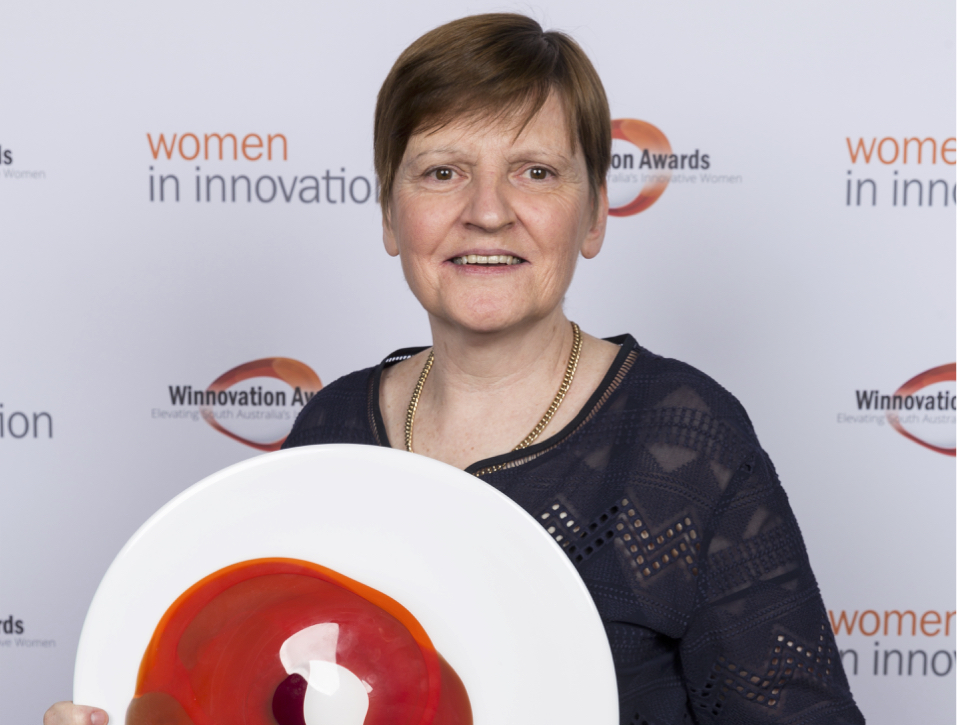
Mary-Louise Rogers’ quest to beat the scourge of Motor Neurone Disease has seen her named one of South Australia’s 2018 ‘Winnovation’ winners.
Dr Rogers, who leads the only dedicated MND-focused laboratory in South Australia, was recognised in the Technology category for her research efforts, which include developing a novel urine test to determine if drugs are working in clinical trials of MND treatment.
The world-first urine test, which detects a unique biomarker, has the potential to expedite the global quest to develop better treatments, or even a cure, for the deadly neuro-degenerative disease.
One in 400 Australians will be diagnosed with MND during their lifetime. Reliable diagnosis occurs late in disease progression, resulting in irreversible nerve damage. The average life expectancy is only 27 months from diagnosis in Australia.
There are no cures. Treatments are very few in number and limited in effect.
“There is an urgent need for a validated biomarker for MND that also tracks disease progression, especially in clinical trials of potential therapies, as there are none for MND,” says Dr Rogers, from the Physiology section at the College of Medicine and Public Health at Flinders.
“We are also refining a targeted non-viral gene delivery method that could be used to deliver treatments for MND, specifically firstly in MND mice.
“Neurons require unique proteins called neurotrophic factors that need receptors to enter neurons and produce their effect.
“Therefore our research has potential to change outcomes, especially in the development of effective therapies.”
Motor Neurone Disease (MND) is the name given to the group of diseases in which the motor neurones undergo degeneration and die. Amyotrophic Lateral Sclerosis (ALS), Progressive Muscular Atrophy (PMA), Progressive Bulbar Palsy (PBP) and Primary Lateral Sclerosis (PLS) are all sub-types of MND.
The Flinders University biomarker technology is being used in three trials, with more in the pipeline. The trials are testing an anti-retroviral therapy, a therapy targeting immune cells, and a copper drug. All the trials are at early stages.
Women in Innovation SA president Nicole Swaine describes the work being undertaken by each of the finalists as “extraordinary and inspirational”.
“These are women working across science, tech, education, business, government and more — and each has recognised a problem in their field and dedicated themselves to solving it … many with international implications,” Ms Swaine says.
The awards, which celebrate South Australia’s leading female innovators, are driven by Women in Innovation SA, a community of volunteer professionals passionate about innovation and technology striving to support and elevate South Australia’s innovative women.
This year’s Women in Innovation (Winnovation) Awards finalists in 10 categories covered science, technology, engineering, innovation, invention, entrepreneurship and social impact in a range of industry sectors and specialisations.
Engineer Karen Reynolds picked up the Engineering category Winnovation award in 2016 for her work establishing the Medical Device Partnering Program, while NVI alumna Amy Orange was recognised last year in the Business category for her ‘Harvest Fair’ culinary social enterprise.

